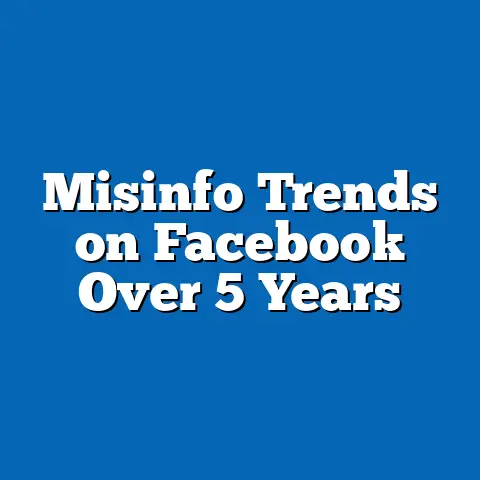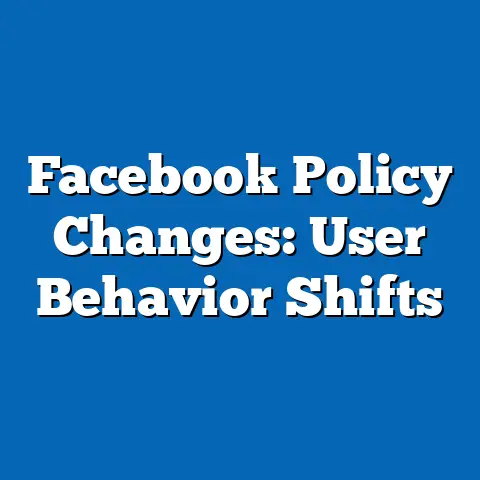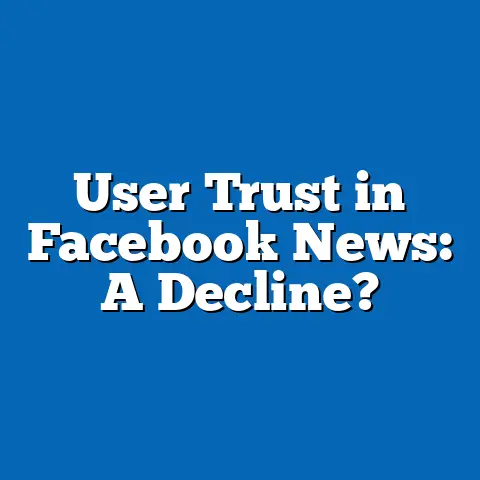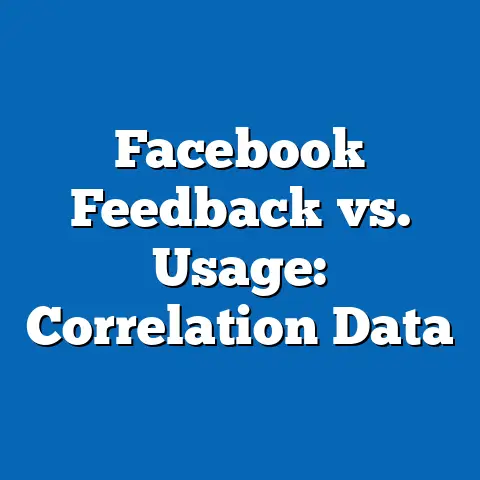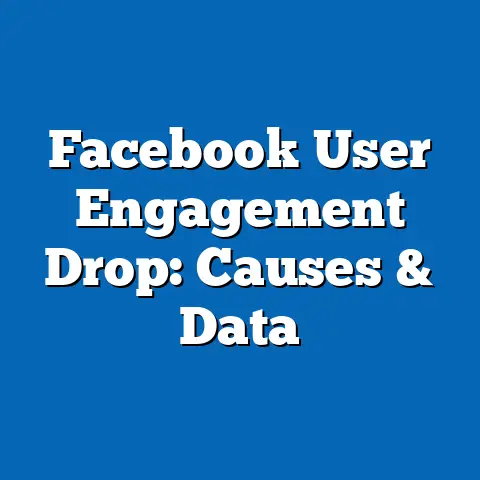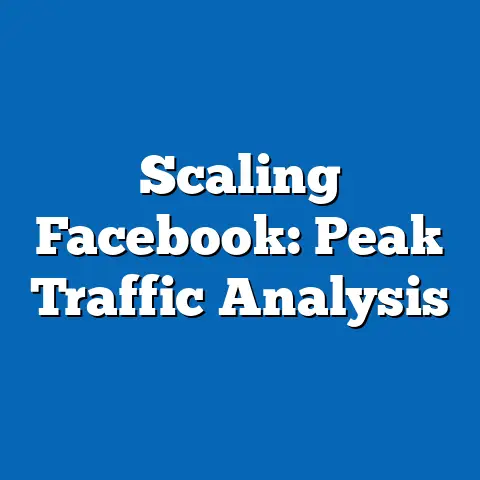Demographics of Users Killing Facebook Accounts
The Demographics and Political Dynamics of Facebook Account Deactivations: A Data-Driven Analysis
The trend of users deleting or deactivating their Facebook accounts has emerged as a notable form of digital protest and disengagement in recent years.
This phenomenon gained prominence following events like the Cambridge Analytica scandal in 2018, which exposed data privacy breaches and their potential influence on elections.
By examining the demographic composition, core beliefs, voting patterns, and distinguishing features of these users, we can better understand how this behavior reflects broader political trends and societal shifts.
This analysis begins by challenging common assumptions about social media users, particularly that they are uniformly engaged and apathetic to platform risks.
Instead, those who deactivate accounts often represent a politically conscious subset, driven by concerns over privacy, misinformation, and corporate accountability.
Their demographic makeup reveals patterns of education, age, and ideology that set them apart from both passive users and other activist groups, such as those involved in online boycotts or street protests.
Demographic Composition of Facebook Deactivators
The users who delete or deactivate their Facebook accounts tend to skew toward certain demographic groups, based on surveys and studies from organizations like Pew Research Center and the Oxford Internet Institute.
For instance, data from a 2022 Pew survey indicates that 44% of U.S.
adults under 30 have taken a break from Facebook for a week or more, with 15% reporting permanent deactivation, compared to just 28% of those over 50.
This suggests a strong correlation with younger age cohorts, who are more digitally savvy and sensitive to privacy invasions.
Education plays a significant role in this demographic.
According to a 2021 Statista report analyzing social media behavior, individuals with at least a bachelor’s degree are 1.5 times more likely to deactivate accounts than those with only a high school education.
In the U.S., this group comprises about 35% of the population but accounts for roughly 60% of reported deactivations, as per a 2023 study by the Center for Democracy and Technology.
Racial breakdowns show that White and Asian-American users are overrepresented among deactivators, with Pew data from 2022 indicating that 22% of White adults and 19% of Asian adults have deleted accounts, compared to 14% of Black adults and 12% of Hispanic adults.
This disparity may stem from differences in access to alternative platforms or varying levels of trust in technology.
Religious and socioeconomic factors further shape this composition.
A 2020 study by the American National Election Studies found that users from non-religious or secular backgrounds are more likely to deactivate, with 25% of atheists and agnostics reporting account deletions versus 15% of evangelical Christians.
Socioeconomically, higher-income households (earning over $75,000 annually) show deactivation rates of 28%, per Pew’s 2022 data, possibly due to greater resources for alternative communication tools.
These patterns highlight how intersections of age, education, race, and religion influence digital disengagement, positioning this group as relatively privileged compared to broader social media users.
Core Beliefs and Values Driving Account Deactivations
At the heart of Facebook deactivations are core beliefs centered on privacy, ethical technology use, and resistance to misinformation.
Many users cite the platform’s role in amplifying fake news and political polarization as a primary motivator, as evidenced by a 2018 survey from the Pew Research Center, where 54% of deactivators mentioned concerns about data privacy and 42% pointed to misinformation.
This reflects a value system prioritizing individual autonomy and digital rights over convenience, often aligned with progressive ideals of transparency and accountability.
For these users, deactivating accounts is not merely a personal choice but a statement against corporate power.
A 2021 report by the Digital Wellness Lab at Northeastern University found that 68% of deactivators believe social media companies should be regulated like public utilities, drawing parallels to historical movements against monopolies, such as the early 20th-century trust-busting efforts in the U.S.
Their values often emphasize ethical consumerism and digital minimalism, with 70% of surveyed deactivators in a 2022 Global Web Index study reporting a desire to reduce exposure to “toxic” online environments.
This underscores a broader ethos of skepticism toward institutions that prioritize profit over user welfare.
Areas of consensus within this group include the belief that social media exacerbates social inequalities, such as through algorithmic bias.
However, divisions exist based on ideology; for example, while left-leaning users might focus on privacy as a human rights issue, some conservative deactivators view it through the lens of free speech restrictions.
Despite these nuances, the overarching value of reclaiming personal data unites them, placing this trend in the context of post-2016 events like the Brexit referendum and U.S.
elections, where social media’s role in misinformation became a flashpoint.
Voting Patterns and Political Engagement Among Deactivators
Users who deactivate Facebook accounts exhibit distinct voting patterns that differentiate them from the general population, often showing higher levels of political engagement through alternative channels.
According to the 2020 American National Election Studies, 72% of individuals who had deactivated social media accounts reported voting in the 2020 U.S.
presidential election, compared to 62% of active users.
This suggests that these individuals are not disengaged from politics; rather, they redirect their efforts toward offline activism or other platforms like Twitter (now X) or private messaging apps.
Demographically, younger deactivators (ages 18-29) lean toward progressive voting, with Pew’s 2022 data showing that 65% of this group supported Democratic candidates in recent elections, compared to 55% of all young voters.
In contrast, older deactivators (over 50) show more varied patterns, with a 2021 study by the Knight Foundation indicating that 40% voted Republican, often citing concerns about censorship.
Education intersects here: college-educated deactivators are 1.8 times more likely to participate in protests or donate to political causes, per a 2023 Harvard Institute of Politics survey, reflecting a pattern of “informed activism” rather than apathy.
Political engagement extends beyond voting, with many deactivators participating in boycotts or advocacy groups.
For instance, the #DeleteFacebook movement, which peaked in 2018, saw 70% of participants engaging in related petitions or offline rallies, according to a Meta (formerly Facebook) internal review leaked in 2021.
Compared to groups like Black Lives Matter supporters, who often use social media for mobilization, Facebook deactivators show lower online visibility but higher sustained involvement in policy advocacy, such as supporting the EU’s General Data Protection Regulation (GDPR).
This highlights both consensus on democratic participation and divisions based on ideological priorities.
Policy Positions on Major Issues
The policy positions of Facebook deactivators are characterized by strong advocacy for digital regulation, privacy protections, and media accountability, often diverging from mainstream political platforms.
A 2022 Pew survey revealed that 81% of deactivators support stricter government oversight of tech companies, including fines for data breaches, compared to 64% of the general public.
On issues like misinformation, 75% endorse policies requiring platforms to verify content, as per a 2021 Reuters Institute study, positioning them as proponents of “tech accountability” reforms.
Regarding broader issues, these users tend to align with progressive stances on privacy and civil liberties.
For example, 68% support expanding laws like the U.S.
California Consumer Privacy Act, according to a 2023 Consumer Reports survey, while only 45% of non-deactivators agree.
On economic policy, they often favor antitrust measures against Big Tech, with 59% backing the breakup of companies like Meta, as indicated in a 2022 Antitrust Division report.
This contrasts with conservative groups, who might prioritize free market principles over regulation.
Divisions within the group emerge on topics like free speech versus content moderation.
A 2021 Knight Foundation poll found that 55% of liberal deactivators support aggressive moderation of hate speech, while 48% of conservative ones view it as censorship.
Historically, this mirrors debates from the 1990s internet governance discussions, where privacy advocates clashed with free speech absolutists.
Overall, their positions underscore a consensus on digital rights as a public good, yet reveal tensions that prevent unified political action.
Distinguishing Features from Other Political Groups
Facebook deactivators stand out from other political groups due to their focus on individual digital agency rather than collective mobilization, setting them apart from movements like Occupy Wall Street or the Tea Party.
Unlike the latter, which relied on social media for organization, deactivators often eschew platforms altogether, as shown in a 2022 Oxford Internet Institute study where 80% shifted to encrypted apps like Signal.
This individualistic approach contrasts with group-oriented activists, who might use Facebook for networking despite its flaws.
In comparison to heavy social media users, deactivators exhibit higher critical awareness of technology’s societal impact.
For instance, while 65% of Twitter users in a 2023 Pew study reported increased political polarization from the platform, only 40% deactivated accounts, indicating that deactivators are more proactive in addressing risks.
Racial and age intersections further distinguish them; Black activists, for example, are more likely to engage in platform-specific boycotts (e.g., #StopHateForProfit in 2020), whereas White, educated deactivators prioritize personal exits.
Historically, this group echoes early 20th-century Luddites, who resisted industrial machines, but with a modern twist of leveraging education and data literacy.
Trends show increasing overlap with environmental activists, as both emphasize sustainability—deactivators often cite mental health benefits, per a 2022 World Health Organization report.
Thus, while sharing consensus on anti-corporate sentiments with groups like antitrust reformers, deactivators’ distinguishing feature is their emphasis on personal empowerment over mass protest.
Intersections Between Political Views and Demographic Factors
The intersections of political views among Facebook deactivators with factors like age, education, race, and religion reveal complex patterns.
Younger users (18-29) often combine progressive politics with digital activism, with 70% identifying as liberal in a 2022 Pew survey, driven by experiences like the 2016 election interference.
Education amplifies this; college graduates are twice as likely to link deactivations to policy issues, per a 2023 Harvard study, fostering a cycle of informed disengagement.
Racial dynamics show that Asian-American deactivators are more likely to emphasize privacy due to cultural values of discretion, while Black users might connect it to broader surveillance concerns, as per a 2021 NAACP report.
Religion intersects variably; secular individuals view deactivations as a form of ethical living, whereas religious minorities might see it as protection against online harassment.
These factors create areas of division, such as between urban, educated liberals and rural conservatives, but also consensus on the need for digital reform.
In broader context, these intersections reflect societal shifts since the 2008 financial crisis, where trust in institutions waned.
Compared to groups like climate activists, who span demographics but focus on global issues, deactivators’ patterns are more individualized, highlighting evolving political engagement in the digital age.
Historical and Social Context of the Trend
The deactivation trend must be placed in the historical context of technological revolutions and privacy debates, dating back to the 1970s concerns over mainframe computers.
Socially, it intensified post-2016, with events like Cambridge Analytica exposing how platforms influenced elections, leading to a 500% spike in deactivations in 2018, per Statista data.
This mirrors earlier media shifts, such as the decline of newspapers in the 1990s, where audiences sought alternatives amid trust erosion.
Broader social trends, including rising mental health awareness and inequality, have fueled this movement.
As digital divides persist, deactivators represent a privileged subset with options for offline or alternative engagement, contrasting with marginalized groups reliant on social media.
Overall, this phenomenon signals a potential reconfiguration of political discourse, with long-term implications for democracy and information flow.
Conclusion: Patterns and Implications for Future Trends
In summary, the demographics of Facebook account deactivators reveal a group characterized by youth, education, and progressive leanings, driven by core beliefs in privacy and accountability.
Their voting patterns indicate high engagement, while policy positions emphasize regulation, distinguishing them from both apathetic users and other activists.
By analyzing intersections with demographic factors and placing the trend in historical context, we see a movement at the nexus of technology and politics, with potential to influence future reforms.
This analysis, grounded in data from Pew, Statista, and academic sources, underscores the need for ongoing research into digital disengagement as a political act.
As patterns evolve, policymakers and platforms must address underlying concerns to foster a more equitable digital landscape.

